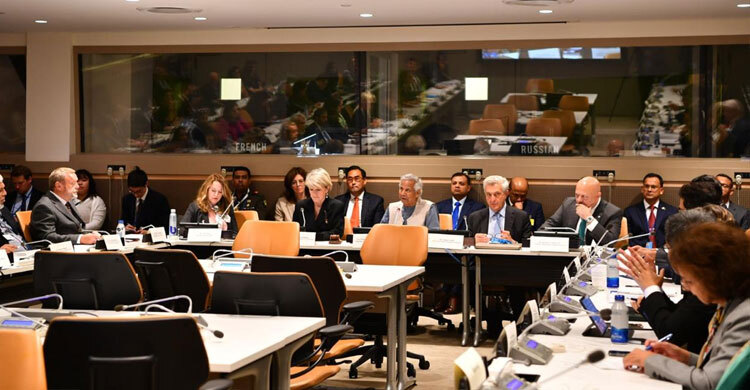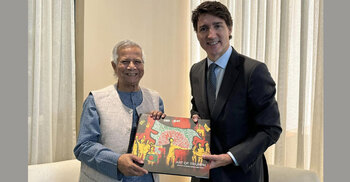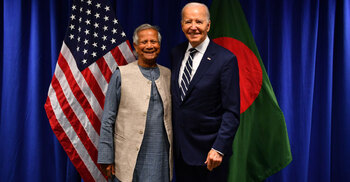Rohingya crisis does not only concern Bangladesh: Yunus

Chief Adviser to the interim government, Professor Dr Muhammad Yunus, has said despite hosting the Rohingyas with great empathy, a densely populated Bangladesh has been incurring so much in terms of socio-economic-environmental costs. These culminate in a series of traditional and non-traditional security risks for us. Much of our own development gains are at stake.
The Rohingya crisis does not only concern Bangladesh, he said, adding that the challenges faced by the people of Myanmar are certain to spill over to the neighboring and regional countries.
Yunus made these remarks in his keynote speech at the 79th UN General Assembly high-level side event on the Rohingya crisis in New York on Tuesday.
He noted that Bangladesh hosts over 1.2 million displaced Rohingyas from Myanmar. The world is little aware that around 32,000 newborn children add up to the population every year in the camps in Bangladesh. In the past two months, another 20,000 Rohingyas had fled to Bangladesh. Clearly, Bangladesh has reached its limits.
“To date, several UN General Assembly, Human Rights Council, and even Security Council Resolutions on Myanmar asked for creating a conducive environment for the dignified, safe, and sustainable return of the Rohingyas. Regrettably, with the root causes of the crisis in Myanmar not addressed, in the last seven years, not a single Rohingya could return to their homeland,” the Chief Adviser said.
“The overall scenario leaves the forcibly displaced Rohingyas, their hosts, and the global partners with lingering uncertainties while the focus and humanitarian support to the Rohingyas dwindle. The presence of a sizable young population in the Camps potentially creates another layer of complexity to the crisis.”
Creating an inclusive society in Myanmar is key where all ethnic communities can live in peace and harmony. All international, regional, and national actors, including UN Security Council, ASEAN, and other friends of Myanmar, need to acknowledge and incorporate it in their approach. We would ask the UN Special Envoy to play a central role, particularly in coordinating the political efforts, he said.
In view of the deteriorating human security, he placed three proposals:
First, UN Secretary General may convene an all-stakeholders’ Conference on the Rohingya crisis as soon as possible. The Conference should review the overall situation of the crisis and suggest innovative and forward-looking ways out;
Second, the Joint Response Plan, managed jointly by the UN System and Bangladesh, needs to be energized. The resource-raising mechanism needs further political push in view of the sliding funding situation;
Third, the international community should seriously support the justice and accountability mechanism to address genocidal crimes committed against the Rohingya community.





